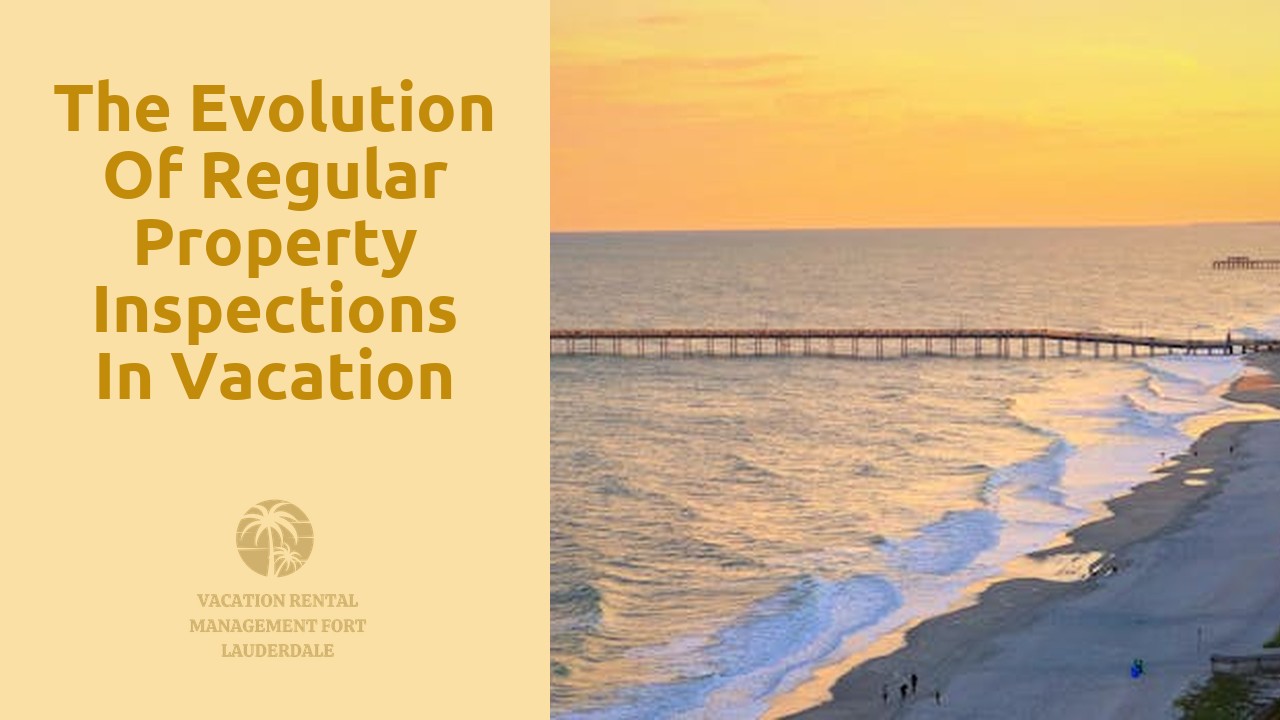
The Evolution of Regular Property Inspections in Vacation Rental Management
Table Of Contents
Addressing Challenges in Property Inspections
Property inspections in vacation rental management present a unique set of challenges that require careful navigation. One of the primary issues faced by property managers is ensuring thorough inspections without intruding on the privacy of guests. Balancing the need to maintain the property's condition with respecting the space of renters can be a delicate task. Moreover, coordinating inspection timings to minimize disruptions to guests while still upholding standards adds another layer of complexity to the process.
Another challenge property managers encounter is ensuring compliance with regulations and legal requirements. Understanding the specific laws and liabilities that govern property inspections is crucial to avoiding potential legal issues. Compliance ensures not only the safety and security of guests but also protects the property owner from any potential risks or liabilities. By addressing these challenges proactively, property managers can streamline the inspection process and maintain a positive relationship with both guests and property owners.
Dealing with Privacy Concerns and Guest Disruptions
Handling privacy concerns and guest disruptions poses a significant challenge for vacation rental managers when conducting property inspections. Guests often feel uneasy about strangers entering the premises, even for legitimate reasons. To address this, managers must prioritize clear communication with guests regarding the inspection schedule and the reasons behind it. Establishing trust through transparency is key in mitigating privacy concerns and ensuring a positive guest experience.
Guest disruptions during property inspections can range from minor inconveniences to major disturbances. Managers need to strike a balance between ensuring the property is well-maintained and respecting guests' right to privacy and peace during their stay. One approach is to schedule inspections during times when guests are least likely to be present, such as while they are out exploring the area or during check-out. Additionally, providing advance notice of inspections can help guests prepare and minimize disruptions, ultimately fostering a harmonious relationship between guests and management.
Compliance and Legal Aspects of Property Inspections
Property inspections in the vacation rental management sector are not just a routine process but also a crucial aspect governed by various compliance and legal considerations. Owners and property managers need to stay well-versed with local regulations and laws to ensure that inspections are conducted in accordance with the stipulated guidelines. Failure to comply with these legal aspects can result in significant penalties and even legal action, affecting the overall reputation and operations of the rental property.
Moreover, understanding the liability issues associated with property inspections is paramount. Property owners must be aware of their responsibilities in ensuring the safety and security of guests during inspections. Proper documentation and adherence to legal protocols not only safeguard the property owners from potential lawsuits but also build trust and credibility among guests. By prioritizing compliance and legal aspects in property inspections, owners can mitigate risks, maintain a positive rental experience, and uphold the integrity of their vacation rental business.
Understanding Regulations and Liability Issues
Understanding regulations and liability issues is paramount in the realm of property inspections for vacation rentals. Property owners and managers must stay abreast of local, state, and federal regulations to ensure compliance and avoid legal repercussions. Failure to adhere to these regulations can result in fines, penalties, or even the closure of the vacation rental property.
Liability issues also play a significant role in property inspections. Property owners are accountable for ensuring the safety and security of their guests. By conducting thorough inspections and addressing potential hazards promptly, owners can mitigate risks and protect themselves from legal liabilities. Additionally, understanding liability insurance coverage and requirements is essential to safeguard against unforeseen circumstances.
Future Trends in Property Inspection Methods
Property inspection methods are constantly evolving in the vacation rental management industry. One emerging trend is the utilization of smart home technology for more efficient and comprehensive inspections. This includes the use of sensors, cameras, and automated systems to remotely monitor and assess the condition of the property in real time. Such technology not only enhances security measures but also allows for quicker identification of maintenance issues, ensuring a seamless guest experience.
Another future trend in property inspection methods is the adoption of virtual reality (VR) and augmented reality (AR) tools. These immersive technologies enable property managers to conduct virtual walkthroughs and inspections without physically being present at the site. By utilizing VR and AR, managers can inspect multiple properties in a shorter amount of time, leading to increased efficiency and lower operational costs. Additionally, these tools can provide a more detailed and interactive inspection experience, allowing for better documentation of property conditions.
Embracing Innovations for Improved Inspections
In the realm of vacation rental management, embracing innovations for improved property inspections has become a crucial focus for property owners and managers alike. The advent of cutting-edge technologies such as smart home devices, IoT sensors, and automated inspection tools has revolutionized the way properties are monitored and maintained. These advancements not only streamline the inspection process but also enhance the overall guest experience by ensuring that properties are in top-notch condition.
One of the key benefits of incorporating innovative inspection methods is the ability to detect maintenance issues proactively before they escalate into major problems. By leveraging tools like real-time property monitoring systems and predictive maintenance algorithms, property managers can stay one step ahead in identifying issues such as leaks, equipment malfunctions, or wear and tear. This proactive approach not only saves time and resources but also helps in preventing guest complaints and ensuring that properties are consistently well-maintained.
Related Links
Review of Regular Property Inspection Tools and Software for Vacation RentalsWhy Establishing an Emergency Repairs Protocol is Important for Vacation Rentals
Top 10 Maintenance and Repairs Tasks for Vacation Rental Properties
What to Look for in Cleaning and Housekeeping Services for Vacation Rentals
Why Regular Property Inspections are Necessary for Vacation Rentals